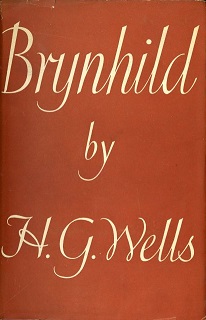Plot summary
Rowland Palace is a novelist married to a distant cousin, Brynhild, a "Quiet Lovely" [1] who is twelve years younger than he. Inordinately sensitive to criticism, Palace has been withdrawing from a wife who is becoming critical of him. When he decides he needs to engage a publicist to cultivate his neglected public image, he hides his plan. The publicist he chooses, Immanuel Cloote, proves to be an agent with imagination and "manifest gusto." [2]
Meanwhile, Brynhild meets and becomes the unique confidant of Alfred Bunter, a rising young novelist of whose popular success Palace is jealous. Bunter confides to Brynhild that he is really David Lewis, from Cardiff, who has left his wife and assumed a new identity as an author. Scarcely has he confided in Brynhild, however, than his true identity is exposed by someone who turns out to be Mr. Cloote, intent on sabotaging Rowland Palace's literary competitors. The plight of Bunter/Lewis elicits Brynhild's sympathies. Brynhild, who had been feeling that she was "too aloof for life," [3] gains a new sense of confidence and self-assurance from her brief affair, and the novel closes with the news that she is with child.
This page is based on this
Wikipedia article Text is available under the
CC BY-SA 4.0 license; additional terms may apply.
Images, videos and audio are available under their respective licenses.
